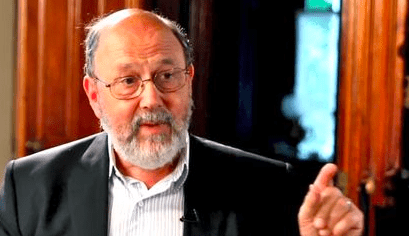 One word that has come up a few times in the last year’s discussion about life after death, about heaven and hell, and about who goes where, is the word “speculation.” A number of folks have used it, but two notables who have pushed against traditionalists with that word are Rob Bell and Shane Hipps. Is the Christian hope in life after death, in “heaven” (however understood), in eternal life, speculation? I cringe when I hear “speculation” because I wonder how extensive such a view is. Is it all speculation? Just speculation? Or is just some of it speculation? What of the Big Four: return of Christ, last judgment, resurrection, and new creation?
One word that has come up a few times in the last year’s discussion about life after death, about heaven and hell, and about who goes where, is the word “speculation.” A number of folks have used it, but two notables who have pushed against traditionalists with that word are Rob Bell and Shane Hipps. Is the Christian hope in life after death, in “heaven” (however understood), in eternal life, speculation? I cringe when I hear “speculation” because I wonder how extensive such a view is. Is it all speculation? Just speculation? Or is just some of it speculation? What of the Big Four: return of Christ, last judgment, resurrection, and new creation?
A simplistic reaction to the “it’s speculation, after all” claim is to affirm or assert or dig one’s ground on the doctrine of Scripture. There’s a better way, and it’s a deeper way. The Christian hope is not simply believing the Bible. I will say it with Greek words and then spell this out as we discuss Tony Thiselton’s Life after Death. Here it is: euangelion is epangelia. (Gospel is promise.)
But before we get there, a little more look at this reason for the word “speculation.” We live in an evidence-based culture, and what is the “evidence” for life after death? Wittgenstein contended that propositions cannot get us beyond what we already know, they can express nothing that is higher than our world. Schleiermacher said what we know about life after death is at best approximation, and even Augustine knew that life after death transcends what language can describe. Some have suggested we have to use “models” that can reach beyond.
Thiselton, though, pushes harder: Locke suggested “entitled” beliefs could rest on revelation; some argue for forms of logical positivism (like Clifford and Ayer), but this accords privileged status to the principle of verification (which can’t be proven on its own basis). Materialism is materialism.
 Thiselton’s argument is that life after death is to be found in the logic of promise, not in the logic of evidence. It is a trust in “things not seen” (in the future, in the beyond) on the basis of who God is and what God has done (Heb 11:1). We look to the future because of God’s promise, because of what God has done and because of who God is. Gospel entails promise. Trust is to believe in and act on that promise. This kind of trust is not simply putting ourselves in God’s hands for his decision; that is not quite trust. It is to believe in God and to lean into God’s promise as our life.
Thiselton’s argument is that life after death is to be found in the logic of promise, not in the logic of evidence. It is a trust in “things not seen” (in the future, in the beyond) on the basis of who God is and what God has done (Heb 11:1). We look to the future because of God’s promise, because of what God has done and because of who God is. Gospel entails promise. Trust is to believe in and act on that promise. This kind of trust is not simply putting ourselves in God’s hands for his decision; that is not quite trust. It is to believe in God and to lean into God’s promise as our life.
Thiselton’s method is hermeneutics and theorists, so he goes to Searle’s famous distinction between “statement” and “promise,” and there is an inherent direction to each term. Statements have words that match the world while promises match the world to the words. They are performative utterances that reshape the world to the promise. Promise, then, summons us to a radical reorientation of life toward a future.
Promises entail commitments of the one who promises (God); they entail binding commitment; they also entail personal responsibility. Covenant is one such promise.
So, to say the Christian hope (life after death and heaven and hell and other such topics) is “speculation” is to counter the promissory nature of the way God works in this world in Jesus Christ, the way God has spoken in Scripture, and the way God has chosen to commit himself to us in covenant. To call this speculation is an affront to the integrity and faithfulness of God. The better word is “hope,” and our response is not despair but trust, a trust established by the kind of God we have come to know in Jesus Christ.














